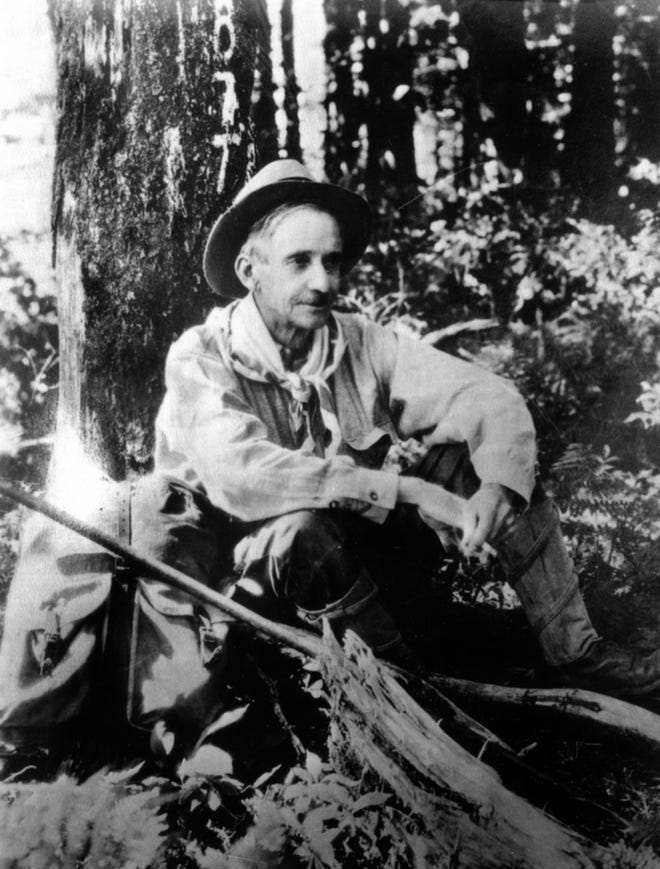To Return Again
By: Horace Kephart
Yes to return again and again; to leave the exhausted air of the cities, the imprisoning walls, the din and strife, the jostling of unsympathetic crowds; to escape from this artificial limbo that has sullied the very sky til we scarce ever lift our eyes to it; to seek once more the pure breeze of the open fields, the far outlook upon a calm world fresh with eternal youth; to bore deep into some primeval wood; to see the world inverted in a glassy lake; to hear the carol of birds and the sigh of the summer breeze, to watch the brightening come in the east and the day break in splendor over an awakening world; to see the shadows fall in the valley and the last gleams of the afterglow glisten on hilltops; to face the starlit sky at night, and dreaming awake, to sink peacefully into dreamless sleep— that is Nature’s specific for the city blight.
Horace Kephart (September 8, 1862 – April 2, 1931) was an American author, librarian, and outdoorsman who is best known for his work in the field of outdoor survival and for his contributions to the establishment of the Great Smoky Mountains National Park.
In 1904, Kephart left his career and family and moved to the Smoky Mountains in western North Carolina. He immersed himself in the rugged mountain life, living among the local people, and documenting their customs, folklore, and way of life.
Kephart wrote extensively about his experiences, producing a series of articles for outdoor magazines and eventually publishing several influential books.
Kephart is remembered as one of the key figures in the early conservation movement in the United States. His writings continue to inspire outdoor enthusiasts, and his work played a significant role in the preservation of one of America's most beautiful national parks.




Oh my goodness. This is my great grandfather. So wonderful to find him here with you.
Working in the fields in my youth we often talked about the sun rising over our heads. When we were in a field that ran east to west you could almost learn to tell time by where the sun was located during the day.